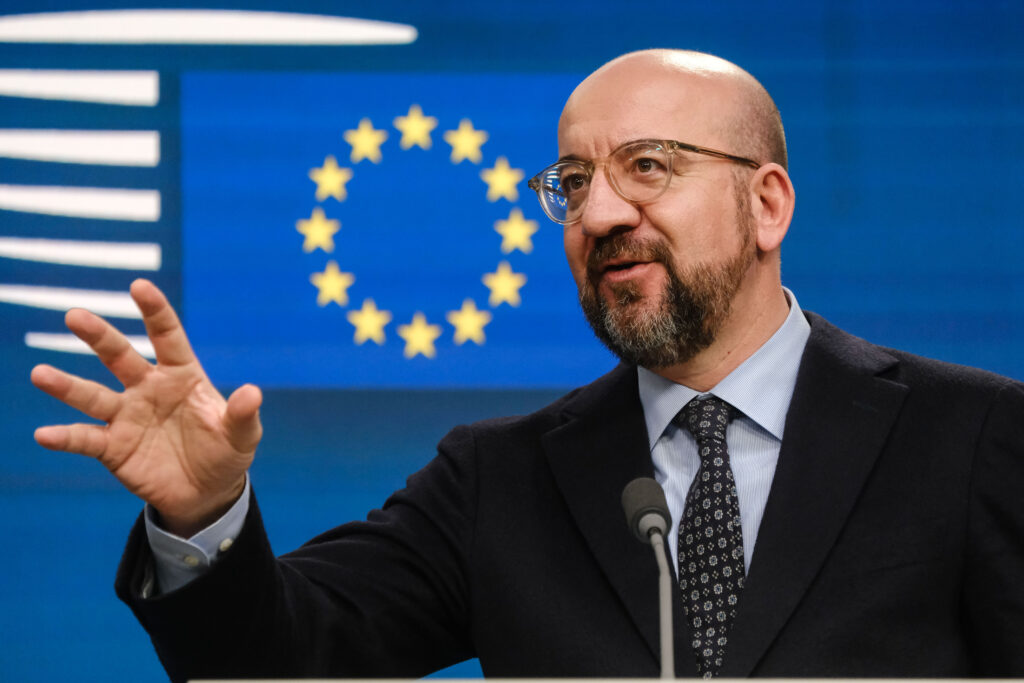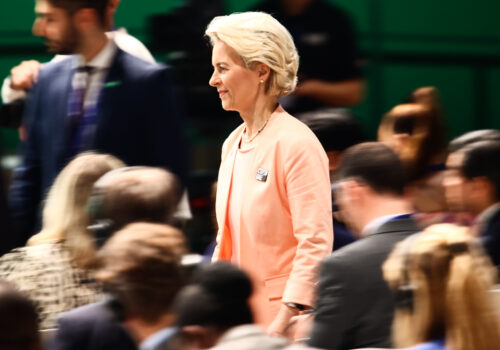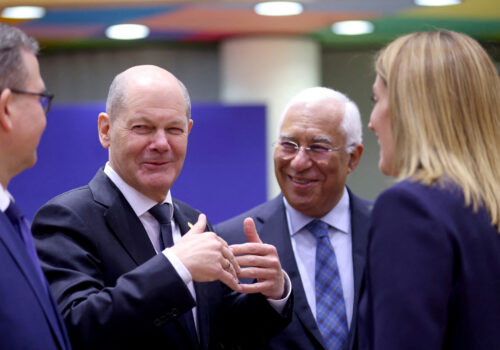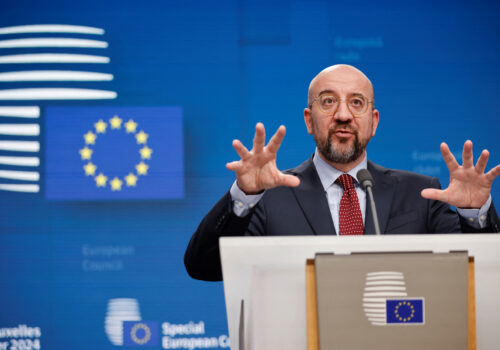“I have decided to run in the European elections in 2024,” European Council President Charles Michel announced on January 6. He went on to say in his interview with a Belgian newspaper that, if elected, he would continue in his current role only until July, before the scheduled end of his term in late November. But like so many new year’s resolutions made, it didn’t last. Before January was out, he had reversed his decision to run.
Michel attributed this U-turn to “extreme reactions” outside his institution and expressed concern that they would “distract us . . . [and] divide the European Council.” Michel was perhaps referring to the criticisms leveled at him over his possible successor. Due to a quirk with interim presidency rules, Hungarian Prime Minister Viktor Orbán, a Eurosceptic, might have taken his place.
The European Council is composed of the heads of state and government of EU member states, the president of the European Commission, and the EU high representative for foreign affairs. Its job is to set the “political direction and [policy] priorities of the European Union.” Although the body was only established in 2009, it has existed informally (and with fewer powers) since 1975. The president of the body is expected to chair and promote consensus at meetings, as well as represent the European Union externally alongside the EU high representative. This position gives the president a great deal of leverage over EU policymaking by playing a role in brokering agreements between leaders of the twenty-seven EU members.
Michel cannot run for re-election, as he is approaching the end of his two-term limit in November.
It is for these reasons that Orbán was seen as a problematic figure to assume the presidency, and his potential succession was a matter of circumstance instead of deliberate strategy. Hungary will assume the rotating six-month presidency of the Council of the EU from June, coinciding with the time that Michel would have assumed his seat in mid-July. Had no successor been confirmed, Orbán might have filled the presidency of the European Council in an interim capacity until the end of Hungary’s term. Given Orbán’s illiberal tendencies and repeated violations of the EU’s rule of law, senior European policymakers were concerned with Orbán’s possible agenda at the European Council.
But the U-turn has not so much solved the issue as delayed a decision: Michel cannot run for re-election, as he is approaching the end of his two-term limit in November. Moreover, Hungary’s presidency will run until the end of December, and Orbán could still claim interim duties in that interval. Consequently, there remains an urgent need to choose a new president.
Although no one has officially announced their intent to run for the presidency, observers should watch out for the potential candidacies of three key figures: Mario Draghi and Enrico Letta, both former prime ministers of Italy, and Mette Frederiksen, the current prime minister of Denmark.
Draghi, a nonpartisan technocrat candidate, served as Italy’s prime minister from February 2021 to October 2022, during Italy’s recovery from the COVID-19 pandemic, and president of the European Central Bank from 2011 to 2019, during the European sovereign debt crisis. Matteo Renzi, Draghi’s predecessor as prime minister, has publicly endorsed Draghi’s candidacy, and French president Emmanuel Macron may endorse him as well following Draghi’s refusal to accept a tentative French-led nomination campaign for European Commission president.
Meanwhile, Letta and Frederiksen have been floated as possible candidates as well because their parties, the Italian Democratic Party and Danish Social Democrats (respectively), are affiliated with the Party of European Socialists (PES). PES may be angling to gain the presidency of the European Council, as its European Parliament group, the Progressive Alliance of Socialists and Democrats, is projected to retain its position as the second-largest party in the legislature in the upcoming election. Following the elections, PES is speculated by Politico Europe to compromise with its main rival and projected first-place contender, the European People’s Party (EPP), to support an EPP candidate for the European Parliament’s presidency. In return, EPP would support a PES-nominated candidate to the European Council’s presidency. Whereas Letta is a more conventional PES choice, Frederiksen’s possible candidacy is more controversial, as her government has taken an especially hard position against immigration. Yet, the PES may consider her nomination as a necessary concession to the right-wing populist parties should they succeed in making anticipated large advances in June’s elections.
Two additional names have been floated: António Costa, the outgoing prime minister of Portugal, and Pedro Sánchez, the prime minister of Spain. Like Frederiksen, both are affiliated with PES, which would make them appealing in a compromise agreement with the EPP. In fact, Costa was originally the PES’s primary candidate to succeed Michel, but his resignation following a high-profile corruption scandal effectively shelved PES’s support for his candidacy. Meanwhile, Sánchez defied the odds and successfully pulled together a governing coalition in Spain for his third term only in November 2023. With room for him and his party to maneuver this year, he may view this as a moment to stay in Spanish politics.
Given the circumstances and how early it is, much can change between now and November. The threat of a potential Orbán presidency of the European Council has been averted until then, but European policymakers should not be complacent about their options either, especially as Orbán could still take interim duties in December. Since 2024 is a pivotal year for elections across the world and a far-right surge in the European Parliament is expected, it is vital that European policymakers consider their options in relation to the growing risk of authoritarianism to Europe both internally and externally.
Francis Shin is a research assistant in the Atlantic Council’s Europe Center.
Further reading
Thu, Feb 1, 2024
Ursula von der Leyen has delivered major wins on decarbonization. What would she do with another term?
New Atlanticist By Francis Shin, Théophile Pouget-Abadie
As her first term comes to an end, von der Leyen’s European Commission leaves a landmark legacy for clean energy.
Thu, Feb 1, 2024
Europe United: EU leaders agree on long-term support package for Ukraine
UkraineAlert By Peter Dickinson
The European Union confirmed a landmark $54 billion aid package for Ukraine on February 1 in Brussels, after EU leaders were able to overcome opposition from Hungary.
Thu, Feb 1, 2024
Experts react: The EU just approved a 50 billion euro aid package for Ukraine. How will it impact the war?
New Atlanticist By
The breakthrough follows weeks of resistance from Hungary and comes as the two-year mark of Russia’s full-scale invasion of Ukraine draws near.
Image: Belgium, Brussels, 2023-12-15. President of the European Council Charles Michel in the meeting of European Council. Over the course of a two-day summit, EU leaders discuss the unfolding situation in the Middle East, continued support for Ukraine in the face of Russia’s war of aggression. Belgique, Bruxelles, 2023-12-15.



